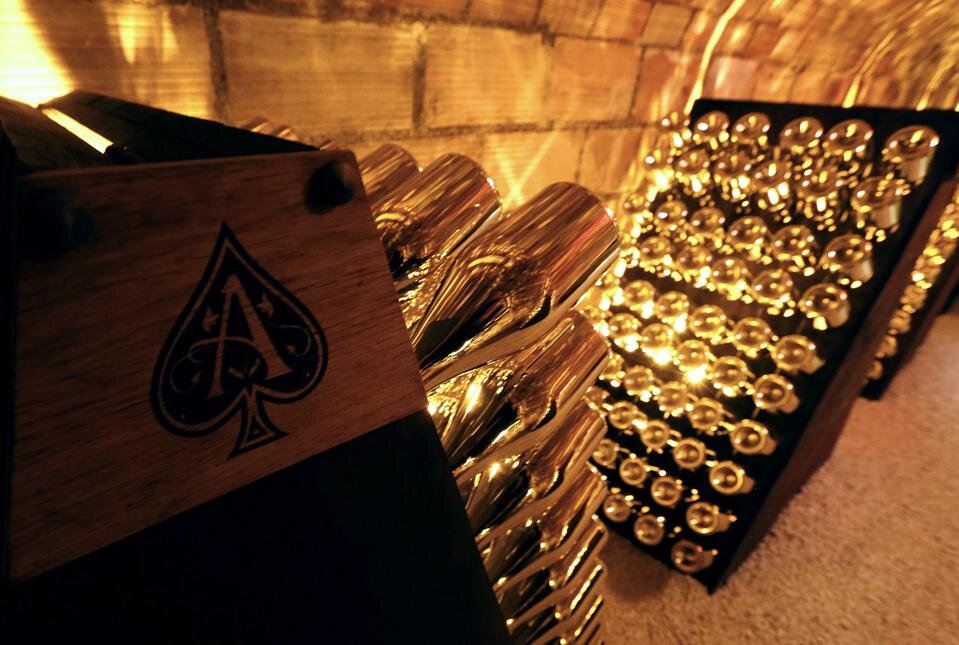LVMH And Jay-Z Announce New 50% Partnership In Ace Of Spades Champagne: Why Investing In Bubbles Makes Sense
Feb. 22, 2021: Originally published in Forbes.
Pop the bottles.
French conglomerate LVMH has announced it has taken a 50% stake in rapper-mogul Jay-Z’s Champagne house, Armand de Brignac. Popularly known as ‘Ace of Spades’ for the vibrant metallic bottles that house the bubbles, the Champagne brand showed strong momentum in pre-pandemic times, selling over 500,000 bottles in 2019.
The partnership also gives Moët Hennessy a global distribution agreement. The French conglomerate has several marquee wines and spirits under its umbrella, including Dom Perignon, Veuve Clicquot, Krug and Château d'Yquem. The deal arrives on the footsteps of recent news that LVMH had paused Rihanna’s Fenty ready-to-wear collection.
Jay-Z famously bought into Armand de Brignac in 2014, following a 2006 boycott of Cristal champagne after an executive at that brand made disparaging remarks about rap consumers. Armand de Brignac makes prestige cuvees by the Cattier family, now in their 13th-generation of crafting wine.
According to the New York Times, the deal was originally discussed in 2019 and seems to be strengthened, at least in part, by the friendship between the rapper superstar and Alexandre Arnault, the son of LVMH founder and chairman Bernard Arnault. “I’ll send him a photo of something going on with me or he’ll send me a photo,” Jay-Z told the New York Times. “It’s super natural, super chill. I view him as a person of high integrity. Always keeps his word, very punctual. These are some of the qualities I have myself.”
While it might seem counter-intuitive to focus on Champagne during a pandemic, the partnership between the French company and the American businessman signals an optimism about the future of luxury consumption and the post-pandemic attitude of consumers.
Why does investing in Champagne make sense? Because sales of Champagne, pre-pandemic, were consistently on the uptick. In 2019, Champagne boasted its seventh consecutive year of record sales in the U.S.; over 297 million bottles of Champagne were exported globally, with over 25 million of those bottles destined for the United States. The U.S., France’s biggest customer, spent over $752.6 million on Champagne imports in 2019, marking a 15.3% increase from the year before.
The pandemic dampened sales for a spirit associated with celebration. The Champagne industry, which kicked off the year with strong momentum, saw sales sharply decrease, reportedly as much as 70%, amid enforced lockdowns, restaurant closings and social distancing.
But then, recall the images last Nov. 7 when the Presidency was called for Joe Biden. Along with footage of people dancing and shouting, there was one other thing that was highly visible in social media and news reports of celebrations: Bottles of bubbles popping.
In Washington, D.C., liquor store owners told Newsweek that they sold more Champagne bottles that Saturday than during the previous two New Year’s Eves combined. Atlanta “experienced a mad dash for champagne,” The Tennessean reported. “Lines of people, often stretching several bodies deep, waited patiently outside of storefronts to order a bottle of bubbles. The feeling of joy that engulfed Atlanta was palpable.”
The New York Post reported: “Champagne flowed ‘like water’ in the Big Apple on Saturday as New Yorkers made a run on bubbly during intoxicating celebrations of Joe Biden’s victory over President Trump. Wine and liquor stores across the city told The Post they were drowning in sales — with some reporting a drought of cheap fizzy stuff. The Boston Globe echoed, “People celebrated outside in downtown Providence, cheering, playing music, and dancing. Liquor stores sold champagne like it was New Year’s Eve.”
Seen in that context, a deal made for Champagne now suggests a rosy view on the market for post-pandemic celebrations.


